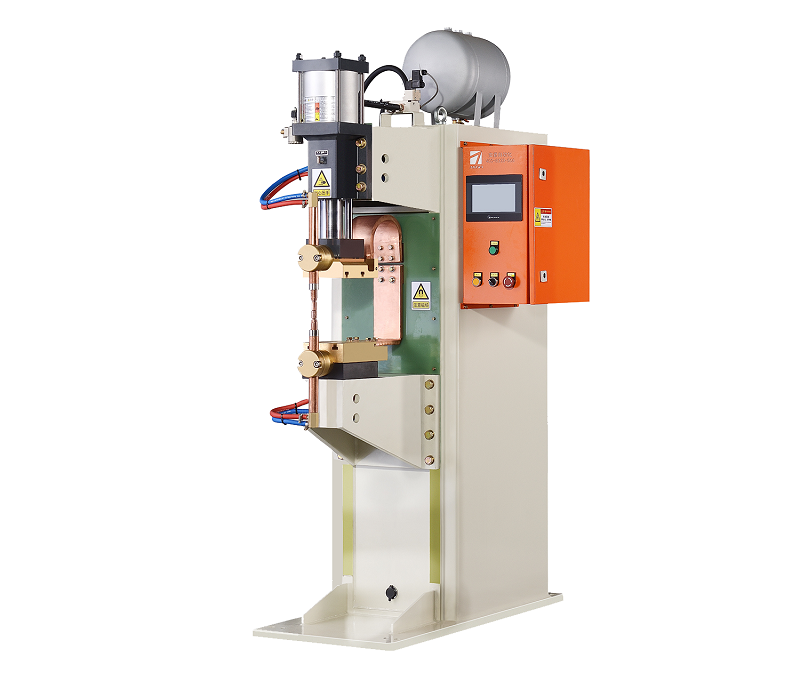Excessive or insufficient welding pressure in medium frequency spot welding machines can reduce the load-bearing capacity and increase the dispersion of welds, especially affecting tensile loads significantly. When the electrode pressure is too low, there may be insufficient plastic deformation of the metal in the welding area.

This can cause serious splashing due to the heating rate caused by excessive current density not being much greater than the expansion rate of the plastic ring. This not only changes the shape and size of the fusion core but also poses safety risks. Excessive electrode pressure can alter the contact area of the welding zone.
Moreover, excessive electrode pressure can increase the contact area of the welding zone, reducing total resistance and current density, increasing heat dissipation in the welding zone. As a result, the size of the fusion core decreases, and in severe cases, incomplete penetration defects may occur.
Generally, increasing electrode pressure while appropriately increasing welding current or welding time helps maintain the heating level of the welding zone. Additionally, increasing pressure can eliminate the effects of pressure fluctuations in the welding zone caused by factors such as uneven rigidity due to welding joint gaps.
The applicable range of welding parameters is relatively small due to the presence of a low-resistance, low-hardness, low-melting-point zinc layer on the contact surface, reducing contact resistance and uneven distribution of the current field, affecting the formation and size of the fusion core.
The electrode life will decrease due to the low melting point of the zinc layer, which easily burns the surface and contaminates the electrode. After contamination, an alloy forms on the electrode surface, making it prone to overheating deformation, reducing electrode life, and easily causing alloy splashing, affecting the stability of weld quality. Cracks, pores, and softened tissue may appear in the fusion core. During spot welding of galvanized steel plates, improper alloy specifications may cause residual zinc and zinc-iron alloy in the fusion core crystallization process, potentially leading to fine cracks or pores. Excessive residual zinc may also lead to softened tissue formation.
Suzhou Agera Automation Equipment Co., Ltd. specializes in the development of automated assembly, welding, testing equipment, and production lines, mainly applied in household appliances, automotive manufacturing, sheet metal, 3C electronics industries, etc. We can develop customized welding machines and automated welding equipment according to customer needs, providing suitable automation solutions to help companies quickly transition from traditional production methods to high-end production methods. If you are interested in our automation equipment and production lines, please contact us: leo@agerawelder.com
Post time: May-07-2024







